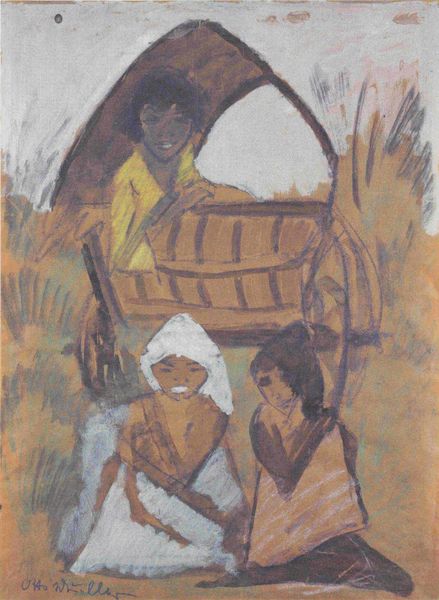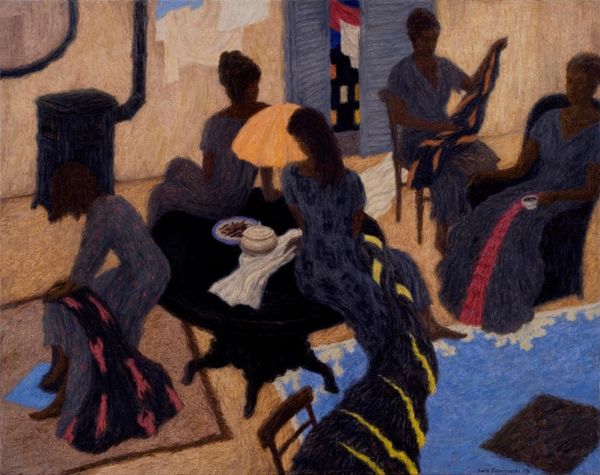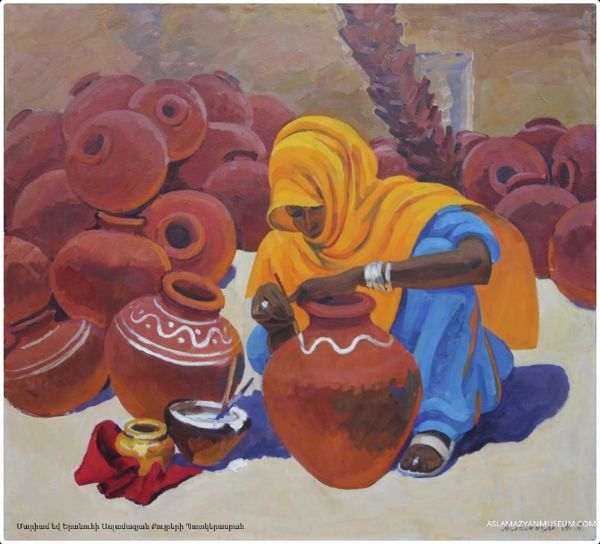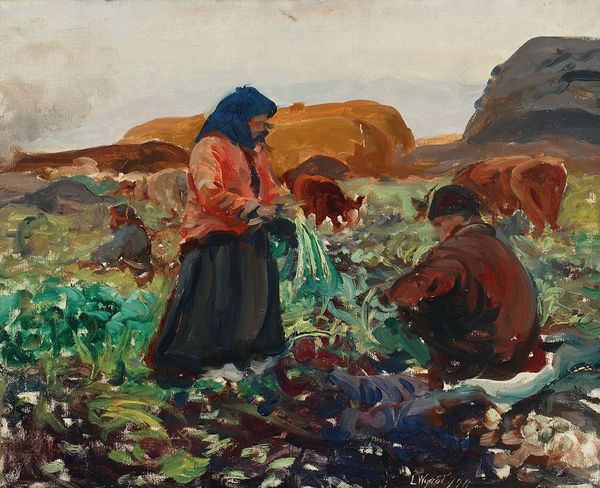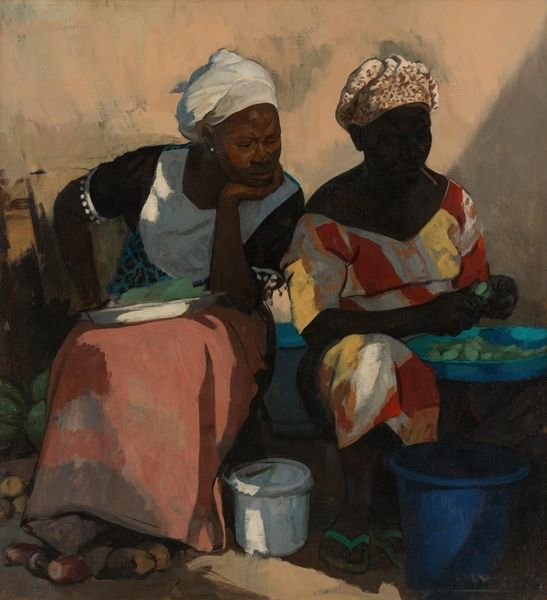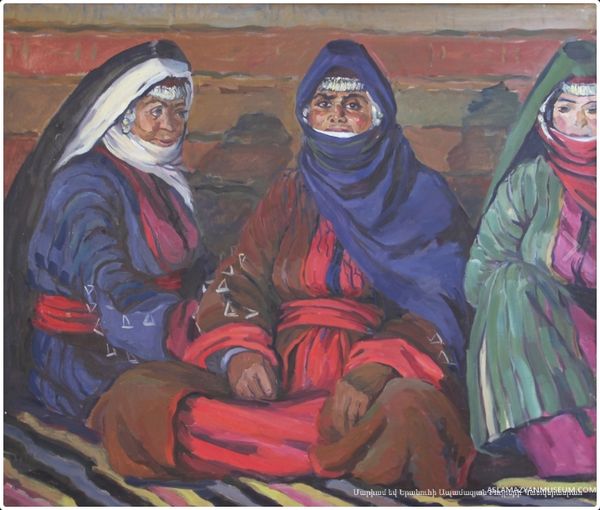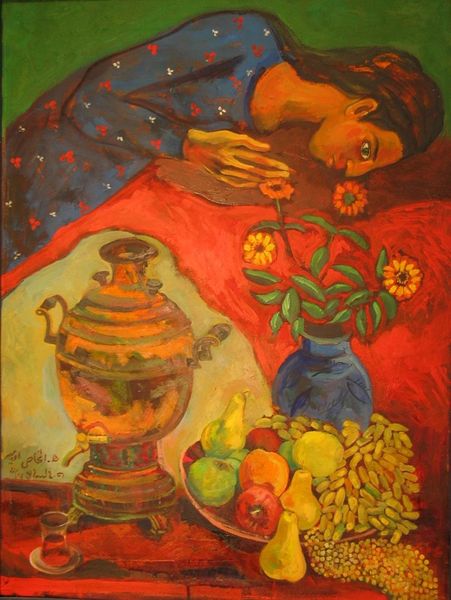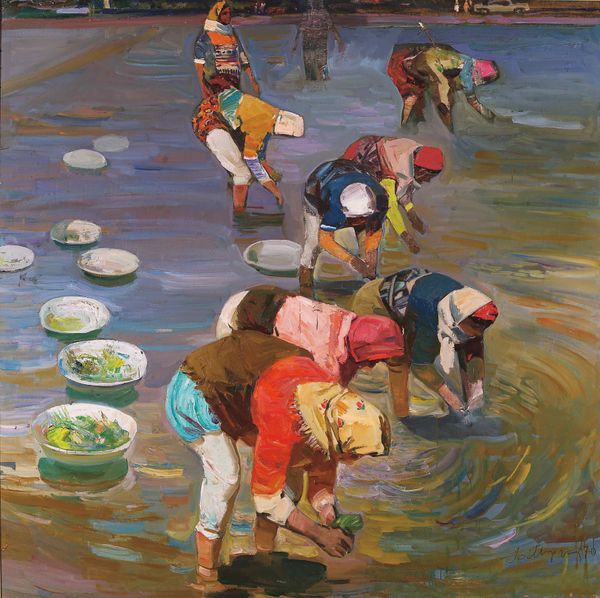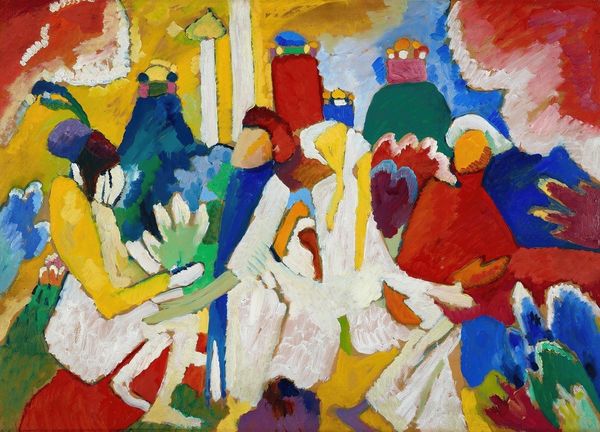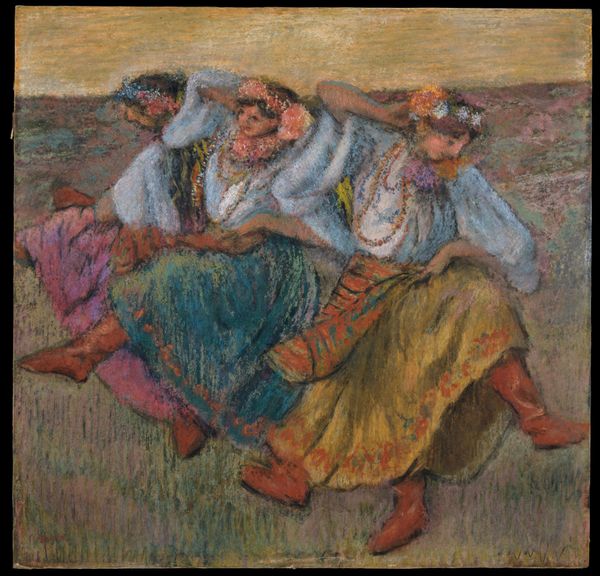
painting, oil-paint
#
painting
#
oil-paint
#
landscape
#
figuration
#
oil painting
#
genre-painting
#
modernism
#
realism
Copyright: Barrington Watson,Fair Use
Editor: Here we have Barrington Watson’s "Washer Women," an oil painting from 1966. It shows a group of women doing laundry by a river. There's a really striking simplicity to the composition, a vibrant palette. How would you interpret this work? Curator: It’s tempting to see this painting as just a picturesque scene of daily life, but considering Watson's involvement with the nationalist movement, it’s likely there is also commentary on labor and identity. What’s being “cleaned” here? The clothes, or something else? How does Watson portray these women in relation to their labor? Editor: That’s an interesting point! I hadn't considered the political implications. So the act of washing isn't just a practical activity, but maybe a metaphor? Curator: Exactly. It raises questions about societal expectations and the roles assigned to women, especially in the context of post-colonial Jamaica. These weren't simply anonymous figures; they represent a specific sector of Jamaican society whose contributions are frequently overlooked. Watson elevates their work, representing the labor required in constructing Jamaica as a post-colonial nation. Notice how their clothing mimics the colours of the land? It pulls them into it, giving them ownership. Editor: I see what you mean. The strong colors and simplified forms do give them a sense of dignity and presence. Does the art historical context play a role, in understanding this emphasis? Curator: Absolutely! The broader art world was experiencing various movements questioning established norms, but here, in Jamaica, there was a more localized quest for identity. "Washer Women" becomes part of a larger conversation about nationhood, representation, and who gets to define Jamaican culture. It’s not just art *for* the people but art *about* the people. Editor: Wow, I'll never see a painting of laundry the same way again! This was very insightful. Curator: Indeed! Considering the socio-political context certainly brings new perspectives to the art viewing experience.
Comments
No comments
Be the first to comment and join the conversation on the ultimate creative platform.


